Fragmentation of the Arab world
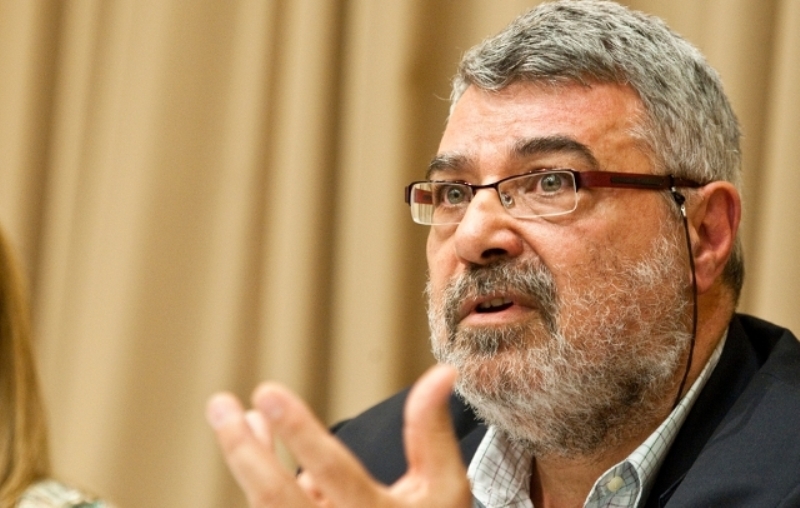
Mr Khouri, what did the year 2011 mean for modern Arab history?
Rami G. Khouri: For the majority of Arabs, that year marked a historical turning point. Their rebellion was spontaneous and dramatic. Millions of ordinary people had had enough of living under the same oppressive conditions. They stood up against economic disadvantages and political exclusion under the autocratic military regimes.
In Tunisia, the transformation to democracy was a success. For the first time ever in modern Arab history, we saw life, politics and human rights coming about in an alternative system based on the rule of law and democratic pluralism. Nothing was copied or taken over from elsewhere. I think most Arabs want the concept of Tunisian democracy for their countries too, and will continue to fight for it.
The uprisings failed in other countries. What has Arab society learned from the experience?
Khouri: It's difficult to talk about a single Arab society. There are more than 360 million Arabs, living under very different conditions. But there are a few general lessons that the politically active Arabs in particular have learned. You need institutions for political, social and economic change. You can't just take to the streets and hold up your banner to topple a regime. There has to be consensus in a country about what roles the government, the army, civil society and religion play.
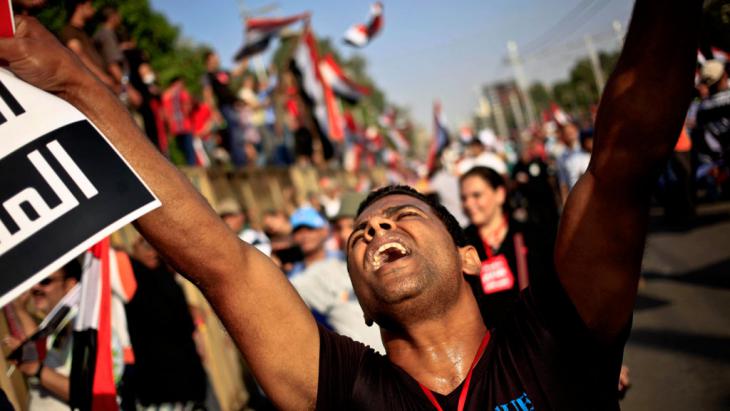
Did the uprisings fail because people were too impatient?
Khouri: That's true in some cases. A transformation doesn't happen in fast-forward. If elections are held too quickly there’s a risk of encouraging political polarization. That's what happened in Egypt and Libya. The only country that took more time and formulated clear rules was Tunisia. That shows that a democracy can't come about from one day to the next.
What set in motion the spiral of violence that followed on from the peaceful demonstrations in the spring of 2011?
Khouri: One of the main reasons why half a dozen Arab states slipped into violence, chaos and fragmentation was that the old elites, which had been surprised by the original uprisings, gained a footing again and hit back viciously. Some Arab governments and foreign powers sent them weapons and money to do so. With their backs to the wall, the old elites hit back without mercy and killed anyone and everyone that got in their way. Fear spread among millions of people, who didn't leave their countries and therefore risked their lives. It was this fear that transformed many ordinary citizens into fanatical machines who then often began killing against the background of their confessional identities.
Is the rise of the "Islamic State" ultimately a product of the failed Arabellion?
Khouri: The chaos after the failed uprisings in Syria and Iraq may have enabled the fundamentalists to set up their bases there faster. The failure itself, however, was not the reason why groups like the "Islamic State" came about. These movements began their activities four to five years before the uprisings in the Arab world. Iraq was in a state of chaos as a result of the British-US invasion. That's why the Al Qaida terrorist Abu Musab al-Zarqawi was able to found a precursor to the "Islamic State" there, the "Islamic State in Mesopotamia". So it was the war in Iraq that provided the perfect breeding ground for the rise of radical Islamists, whereby the fundamentalist ideology had existed for a long time previously, with the Al Qaida terror network.
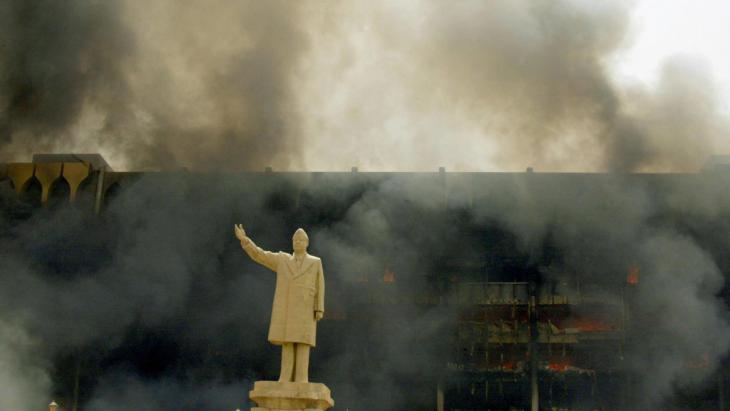
What strategy is the "Islamic State" pursuing?
Khouri: The "Islamic State" wants open war. Osama Bin Laden pursued the same strategy. The image they project externally and internally is this: they claim to be establishing an authentic Islamic state. Yet Western and Arab states – the "infidels" – want to prevent that and attack them. That means these extremists rejoice to a certain extent over the air strikes on their positions, because they can use them to justify their Holy War.
The international battle against the "Islamic State" is moving very slowly. It was only after the execution videos of the Jordanian pilot and 21 Egyptian Copts that Jordan and Egypt flew more intensive attacks on IS bases. But should the Arab states not be doing more to fight them?
Khouri: It won't be enough to beat the "Islamic State" on a military level alone. Like Al Qaida, they don't use conventional methods. A fighter might plant a bomb one evening and go to work perfectly normally the next day. Of course, the Egyptian and Jordanian aerial attacks were understandable as a reaction to the executions. Nevertheless, I do see a fundamental problem in the case of Egypt, in particular. There are currently up to 20,000 political prisoners in the country, behind bars although they're not criminals. The Egyptian government’s ruthless treatment of political Islam, especially, could play into the hands of the "Islamic State". The IS finds new recruits everywhere – in prisons or bombed cities – places where young men are confronted with a deadening, hopeless reality.
The "Islamic State" does most of its recruiting in Syria. There has been speculation in the international media that the Assad regime might be facing a rehabilitation, to support the international alliance in its fight against the extremists. What do you think?
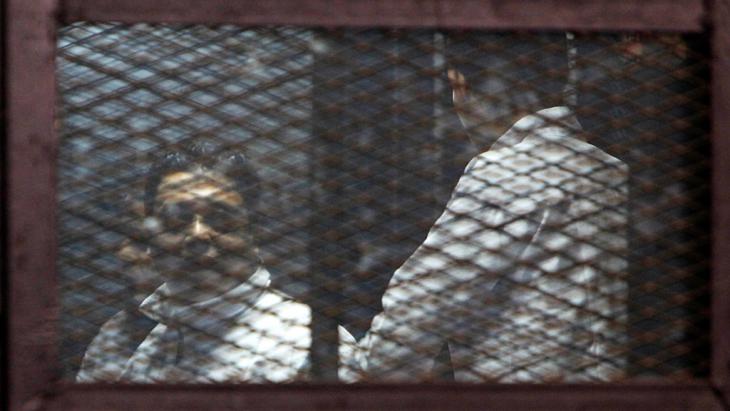
Khouri: I don't think the old elites should be rehabilitated. They're one of the main reasons for the present situation in the Arab world. They need to have a radical rethink, like in the case of the Tunisian president Béji Caid Essebsi. But for most of them, there's no going back. They ought to be deposed and brought to justice for their atrocities before the International Court of Justice. The old elites are no longer the only players using violence on a grand scale, along with the "Islamic State" and other radical Islamic groups. Yet that shouldn't make their reputation any better. Assad has no future in Syria. His regime consists of just about 150,000 soldiers and the old secret services, which only control a third of the country now. And Assad has only managed to hold on in Damascus because he has support from the Lebanese Hezbollah, Iran and Russia. Purely theoretically, he's not even Syrian president any more, and he certainly shouldn’t be rehabilitated under any circumstances.
Alongside trouble spots like Syria and Iraq, there are also Arab states that have gone undisturbed in the past four years of revolutions and war – above all Saudi Arabia. Will the Saudi kingdom remain a cradle of stability in the region in future?
Khouri: Saudi Arabia is a unique case. Saudi politics have been remarkably stable for many years, and the new King Salam is likely to rule the country in the same conservative manner. He may undertake a few minimal political changes in the next few months; he’s already replaced a few people in office. But I don't think politics in Saudi Arabia depends on individuals. It's based on a consensus between the royal family and a handful of technocrats. Nothing will change very quickly in Saudi domestic policy.
Does Saudi Arabia have to reposition itself in the region, politically?
Khouri: The traditional Saudi style of discreet action and indirect intervention in regional matters has little chance of success in view of the turbulent changes in the Arab world. Saudi Arabia has realized this and is now taking a more offensive approach. It is sending money to the Sisi regime, for instance. And not to forget that the Saudi army invaded Bahrain in 2011 to put an end to the uprisings there. That shows how concerned the Saudi royal family is over change in the region. It's scared of popular revolutions, elected Muslim Brothers and democratic traditions in the Arab world. So it's taking a more active part so as to slow down these processes or prevent them outright.
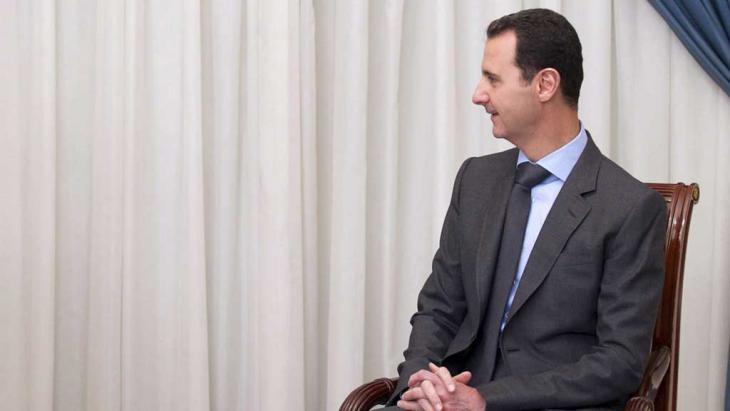
Violent players like the "Islamic State", Al Qaida in the Arab Peninsula and many other radical Islamist groups haven't reacted to the Saudi strategies of mediation and developmental aid to resolve the conflicts in the region. The new confession-based regional and local tensions are another major challenge that Saudi Arabia can't afford to ignore – particularly in its role as the guardian of Sunni Islam and the holy sites like Mecca.
One of Saudi Arabia's greatest concerns is Iran's continued influence in the region, with its support for the Syrian regime and the allied Hezbollah militia. The Saudis in turn finance the mainly Sunni rebels in Syria. What are the consequences of this rivalry between the region's two major powers?
Khouri: Saudi Arabia and Iran are two influential Gulf states. Despite that, I don't understand why the relationship between the two countries is so tense, because they are not a direct threat to one another. Their primary competition is an ideological one. They're concerned with finding allies who think like they do. The only difference is that Iran used to embody a revolutionary Islamic power in the past, and Saudi Arabia represents a conservative Islamic power.
It will take more sensitive statesmen to sit down around a table and develop deescalating strategies. It's obvious that the Saudis see Iran's support for Hezbollah, Hamas and the Syrian regime as a threat. And so both countries finance proxy wars in Syria and Iraq, wasting of human lives and of money. And we're all idiots to let something like this happen – because we've seen that the consequence of these wars is nothing but chaos and madness.
Interview by Juliane Metzker
© Qantara.de 2015
Translated from the German by Katy Derbyshire
